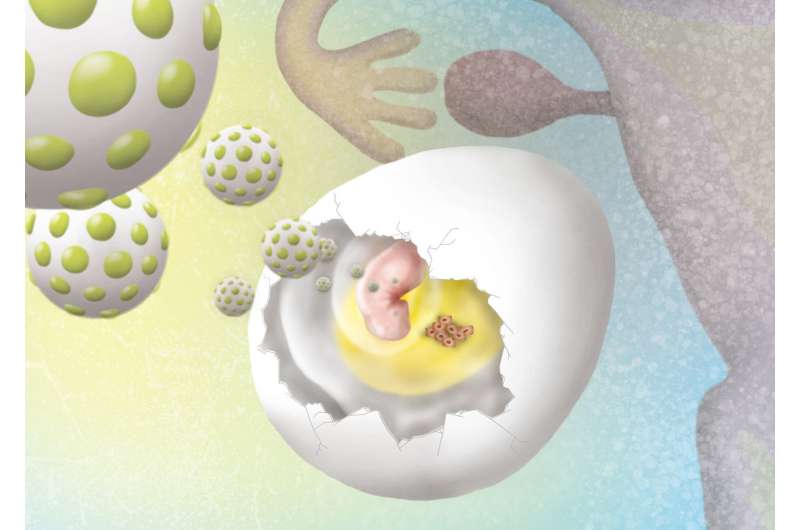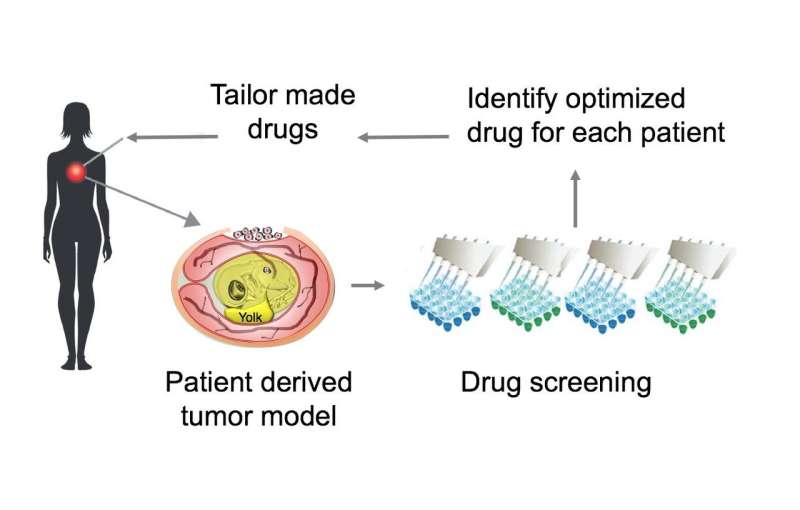A major step towards individualized cancer therapy

Fuyuhiko Tamanoi of Kyoto University's Institute for Integrated Cell-Material Sciences (iCeMS) and colleagues in the U.S. succeeded in establishing a powerful and convenient model to analyse human cancer.
The researchers developed a chicken egg tumour model in which cultured ovarian cancer cells are transplanted on top of the membrane that surrounds a 10-day-old chicken embryo. An ovarian tumour forms on top of the membrane within three days of transplantation.
The team had similar results when they used ovarian tumour samples taken directly from patients, showing that their chicken egg model provides a convenient system for replicating human cancer. This conclusion is supported by their detailed characterization of the tumour, demonstrating that it possesses all major cancer features. "We were surprised when the tumour was formed in three days," says Tamanoi."
This is very rapid, considering that it takes weeks to do the same with mice. We can start using this model to test for anti-cancer drugs tailored to each cancer patient's needs. The process can be completed within one week," he says. This is a major step toward individualized medicine for cancer patients.
Tamanoi's team, in collaboration with colleagues in France and Saudi Arabia, also developed a new type of biodegradable silica nanoparticle called biodegradable PMO, which is only 200 nanometres in size. The nanoparticles were loaded with the anti-cancer drug doxorubicin and were tested on human ovarian tumour established in the chicken egg.

The biodegradable PMO carrying doxorubicin quickly eliminated the human ovarian tumours without affecting other organs in the chicken embryo. When a smaller amount of the drug, not enveloped in the nanoparticles, was injected in the egg, severe organ damage ensued. This indicates that the team's nanoparticles prevent anti-cancer drug side effects due to their ability to directly target the tumour.
The chicken egg model has several advantages over existing models, such as mouse models, for testing anti-cancer therapies. The tumours form much more rapidly on the chicken embryonic membranes than in mice due to the rich nutrient environment and the incomplete immune system at this stage of embryonic development. Fertilized chicken eggs are also less expensive to use than immune-compromised mice making the model suitable for high throughput experiments.
More information: Binh Thanh Vu et al. Chick chorioallantoic membrane assay as an in vivo model to study the effect of nanoparticle-based anticancer drugs in ovarian cancer, Scientific Reports (2018). DOI: 10.1038/s41598-018-25573-8


















